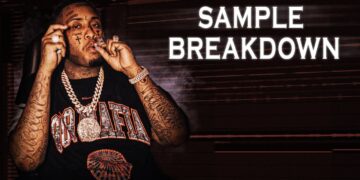1. Treat it Like a Job Application
I can’t stress this point enough. If you want to get the right sponsor, label, agent, etc., you have to treat the process like you would for a high-end job. You wouldn’t send a generic cover letter filled with typo’s and grammatical errors or an incomplete resume would you? It seems basic but nearly 70% of the submissions I receive lack some of the basics – at least 20% forgot to include the band’s name or a link to the website.
If you want a someone to take you seriously, then you have to take yourself seriously enough to make sure the presentation is just right.
It’s often said “It isn’t what you know but who you know.” Just like job applicants who have a mutual contact or letter of recommendation have an advantage, artists that have spent their time networking and building their reputation will have much greater odds. Think of A&R reps as recruiters or the HR department. Put yourself in their mindset, ask someone else to look at your press kit before you hit send. Try not to send unsolicited demo’s (if it is a company you want to work with, introduce yourself and get to know them first).
2. Understand What Makes You Unique
I often write about honing your “elevator pitch.” Although many bands claim to be different, they don’t seem to have any way of proving it. Don’t ever say anything along the lines of “we are different than anything you’ve ever heard,” because it usually means that you sound like the same crap that the last band who claimed that. Find ways of expressing why you are the first or only act of your kind. Also, when describing your music, use other artists to help explain your sound even if or especially if it is in a new and interesting way (i.e, “Sounds like Dolly Parton covering Marilyn Manson”).
3. Use a Laser, not a Shotgun
Choose your prospects carefully. You always want to be wise about who you choose to work with because it does reflect your art (and their business). Spend more time focusing on a few targets and less time copying and pasting generic emails to everyone possible. Most people understand that sending your jazz trio’s demo to a record label that focuses on metal is a waste of time but they still are looking for sponsorships from companies that have nothing to do with their target audience. The more you can prove how working with you makes sense for the company, the more likely they will respond positively. You will be more effective if you spend more time researching the appropriate companies to work with than blasting everyone with a generic email.
4. Build Up Your Own Business
The best way to get the music industry’s attention on your band is to help up our business so much that they can’t help but notice the buzz about you. Labels aren’t interested in acts that can’t sell records…so if you want to get on their radar, you’ll have to sell some. Most booking agencies don’t like to take a risk on unestablished acts, they want to see a strong touring history. Besides, it will always behoove you to learn as much about the music industry as possible anyway, especially if you are hiring others to help you with your work. Building up your business is the best way to prove that you can provide a return on investment for a sponsor or label. Think of it this way: if you had some money to invest into a business, would you want to go with the unproven idea or the money-making one that has a history of success?
5. Leave Them Wanting More
When you first contact someone, your immediate goal isn’t to get signed or securing a sponsorship. It’s to develop a relationship, a series of communications where you can get to know the prospect more. Think of it like “courting” – you don’t want to ask for marriage on your first date. You want to leave some mystery so that they’ll be wanting more. If you want them to be more interested, don’t just talk about yourself. Ask questions, find out what they want. Get permission to contact them more and find creative ways to leave them thinking about you.
Author: Simon Tam
Source: www.laststopbooking.com



![How WE Produced “On Your Own” by Lil Tecca + [FREE KIT]](https://beatmakingvideos.com/wp-content/uploads/2025/11/how-we-produced-on-your-own-by-lil-tecca-free-kit-1-360x180.jpg)

